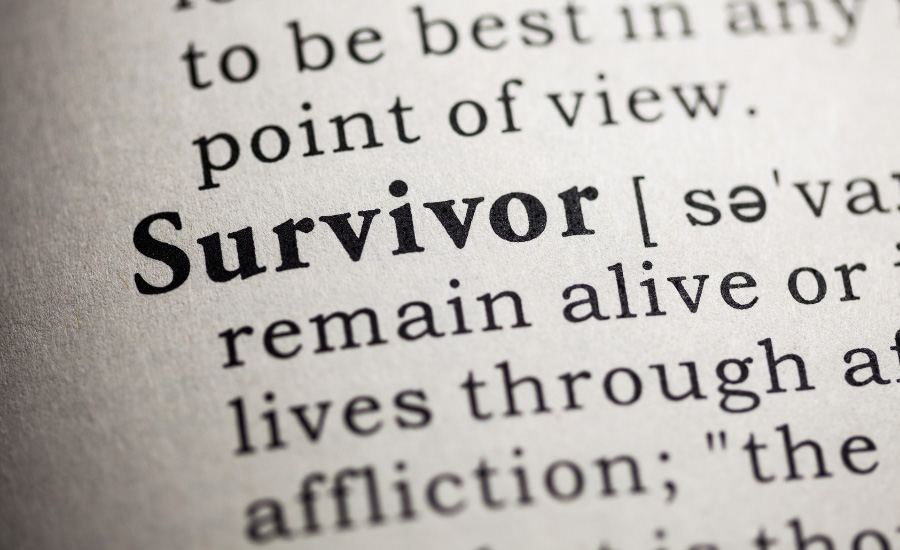Surviving Suicide Loss
Greensboro Grief Counseling
“The person who [dies by] suicide puts all his psychological skeletons in the survivor’s emotional closet –he sentences the survivor to deal with many negative feelings and more, to become obsessed with thoughts, regarding their own actual, or possible role in having caused the suicidal act, or having failed to abort it” (Shneidman, 1972).
If you’ve experienced the loss of someone you love to suicide, this quote probably deeply resonated with you. The pain has so many layers, making the grief complex. You can probably feel the heaviness of those skeletons in your closet. And then there’s the stigma (even though it’s getting better the more we talk about it – it’s still there.) Maybe you’ve noticed friends who have backed away or just don’t know what to say to you anymore. This only compounds your grief. And there are so many other secondary losses that seem to pile on the grief to the point of overwhelm.
Research shows that survivors can experience high levels of psychological symptoms including, but not limited to, depression, guilt, anxiety, and trauma (McMenamy, et al., 2008). Many feel ultimately rejected which can lead to low self-esteem. This is on top of the most common grief symptoms of sadness, fatigue, and changes in appetite (Koenig, 2019). You not only feel the effects psychologically, but you feel them in your body too. It seems that everywhere you turn, the grief is there. It feels like there is no escaping it – and it’s just too much!
In grief therapy, there are treatments that can help. For traumatic grief, I (Wendy) sometimes use a therapy called Eye Movement Desensitization and Reprocessing (EMDR) through the lens of Polyvagal Theory. What in the world does all of that mean? First, God has designed your body with amazing self-healing properties. Think about when you get a cut on your skin. As long as you keep the cut clean, your body heals it. Depending on the depth of the cut, sometimes there is a scar left, but the wound is no longer open and demanding your attention. The same is true with psychological and emotional pain in the sense that your brain and body have the capacity to heal.
Secondly, EMDR is an evidence-based approach meaning that there have been lots of studies that show its effectiveness. These studies also show that EMDR can have lasting effects, reducing the symptoms of trauma. Compared to other methods, healing has been shown to happen at an accelerated pace.
When you experience trauma, your brain becomes overwhelmed so that it cannot correctly process and store memories. This can leave you with symptoms such as high levels of anxiety and/or depression. You may only remember the trauma in bits and pieces, or you may feel as though you are reliving the event over and over. This is because traumatic memories are stored differently than normal memories.
EMDR therapy helps your brain to integrate the memories into a coherent whole so that you can tell the story with a beginning, middle, and end. When you have a narrative that allows you to know that the danger is over, your brain can begin to heal. As memories are integrated and processed, symptoms are reduced allowing you to get back to living a more peaceful life. It doesn’t mean that you will forget what happened or that you won’t be sad or mad when you think about the memory, but the strong bodily sensations and thoughts that you had previously had, can be greatly reduced.
When someone you love dies by suicide, the grief will always be there. However, with grief work and time, you will be able to grieve with more love than pain. At the beginning, it’s totally normal to grieve with a lot of pain. There are so many questions – the whys, the what ifs, the if onlys… At Breathe Again Counseling, you are not seen as broken. You are heartbroken because you’ve lost someone you love, and grief is always about love. Having someone to walk alongside you and give you tools to help you manage your life can be invaluable. And because grief doesn’t get smaller, you have to figure out how to make your life bigger and grow around your grief. If you are looking for grief counseling in Greensboro because you are living through the devastation of surviving suicide loss, reach out through the contact form to see if Breathe Again Counseling may be able to help you to navigate a path through the wreckage of loss.
Koenig, D. (2019, July 11). The Grief Experience: Survey Shows It’s Complicated. Web MD. https://www.webmd.com/special-reports/grief-stages/20190711/the-grief-experience-survey-shows-its-complicated#:~:text=WebMD%27s%20survey%2C%20“Grief%3A%20Beyond,in%20the%20past%203%20years.
McMenamy, J. M., Jordan, J. R., & Mitchell, A. M. (2008). What do Suicide Survivors Tell Us They Need? Results of a Pilot Study. Suicide and Life-Threatening Behavior, 38(4), 375-389. https://doi.org/10.1521/suli.2008.38.4.375
Shneidman, E. (1972). Survivors of Suicide, ed. Albert C. Cain, 2 vols. Charles C. Thomas Pub Ltd., x.
Please note that Shneidman’s original quote used language appropriate for the time. Bracketed words use updated language.


